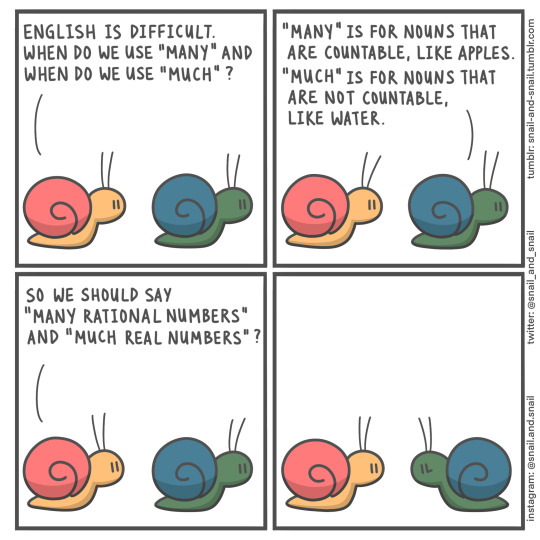#grammar school
Text
Mastering Concentration: Exercises and Yoga Practices for 11 Plus Exam Success

2 notes
·
View notes
Text
Y'all. We need to bring back grammar schools. It's bad out here.
2 notes
·
View notes
Text
Meat and Poultry - Ground Turkey Casserole Recipe

It's great, quick, and quick! This lesson I received in grammar school. You might want to serve it with a salad and cornbread or French bread.
1 note
·
View note
Text
How to Prepare Your Child for 11+ Exam of the Grammar School?

Grammar School Admission: We are going to delve into the details of how to prepare your child for the 11+ exam of the Grammar School.
For more info visit:- Grammar Online Classes Near Me
0 notes
Text
I hate being that person but when people don't understand the basics of physics is like a slap in the face to me what do you mean you don't know about molecules and states of matter.
#is it a grammar school thing#or is it valid#physics#states of matter#grammar school#states of matter!!#molecules#physics and stuff#science#women in stem
1 note
·
View note
Text
Part of speech বা পদ প্রকরণ কি ?
Every word of a sentence is a part of speech. কার্য সম্পাদনের দিক থেকে Sentence-এ ব্যবহৃত শব্দগুলোকে ৮ভাগে ব্যবহার করা যায়, এদের প্রত্যেক ভাগকে Part of Speech বলে। কোন শব্দটি কোন ধরনের Part of Speech তা সে শব্দটি ব্যবহারের উপর নির্ভর করে।
Example:
I know that girl. Here ‘that’ is an adjective.
Don’t do that. Here ‘that’ is a Pronoun.
I told that he did it. Here ‘that’ is a conjunction.
There are eight types of parts of speech which are.
Nouns, Pronouns, Adjectives, Verbs, Adverbs, Prepositions,conjunctions and Interjections.
Noun: A noun is a naming word.
Pronoun: A pronoun is a replacing word.
Adjective: An adjective is a qualifying word.
Verb: A verb is a doing or becoming or having word.
Adverb: An adverb is a modifying word.
Preposition: A preposition is a relating word.
Conjunction: A conjunction is a joining word.
Interjection: An interjection is a sudden emotion expressing word.
English Grammar
English Vocabulary
English Words
Others Topics
Definition of Parts Of Speech–
Parts of speech are the basic grammatical categories into which words are classified based on their functions and relationships within a sentence. The traditional parts of speech include nouns, verbs, adjectives, adverbs, pronouns, prepositions, conjunctions, and interjections. Each part of speech has its own unique set of characteristics and rules for usage in the English language.
See More –Types of learners and details
বক্তৃতার অংশগুলি হল মৌলিক ব্যাকরণগত বিভাগ যেখানে শব্দগুলি একটি বাক্যে তাদের ফাংশন এবং সম্পর্কের উপর ভিত্তি করে শ্রেণীবদ্ধ করা হয়। বক্তৃতার ঐতিহ্যগত অংশ বিশেষ্য, ক্রিয়াপদ, বিশেষণ, ক্রিয়াবিশেষণ, সর্বনাম, অব্যয়, সংযোজন এবং ইন্টারজেকশন অন্তর্ভুক্ত করে। বক্তৃতার প্রতিটি অংশের নিজস্ব স্বতন্ত্র বৈশিষ্ট্য এবং ইংরেজি ভাষায় ব্যবহারের নিয়ম রয়েছে”
We know each people that how many types of “Parts of Speech“.So,Look at the picture in below.
Related Post-Synonym & Antonym Words
1.Noun-Naming a word
Names a person, place, thing, or idea, including days and months
My mother cooks delicious food.
2.Pronoun-replaces a noun
Replaces a noun or noun phrase
I tried to talk to her this morning.
3.Verb-action word
Shows action, helps the main verb to show the tense, moods, or voice of the sentence
The sun is shining and the birds are singing.
#Part of speech#English_grammar#speech#grammar#espclass#education#english#writers on tumblr#writing#teaching#learning#linguistics#grammar checker#grammar school#grammar tips#vocabulary#english language
0 notes
Photo

Ground Turkey Casserole Recipe
Its quick, fun and great! I learned this in grammar school. You may want to serve with corn bread or French bread and a salad.
0 notes
Photo

Ground Turkey - Ground Turkey Casserole
Its quick, fun and great! I learned this in grammar school. You may want to serve with corn bread or French bread and a salad.
0 notes
Photo

How to improve the speed for the 11 Plus exam
The 11 Plus exams are designed to test a student's aptitude in a range of subjects including Verbal Reasoning, Non-Verbal Reasoning, Maths and English. These exams require a significant amount of preparation and practice and the development of time management skills to complete the test within the allotted time. Here are some tips to improve speed in 11 Plus exams:
a) Before the exam, make sure you understand the format of the test and the types of questions that will be asked. This will help you to manage your time better during the test.
b) Practice is key to improving your speed and accuracy in 11 Plus exams. Use past papers and sample questions to become familiar with the types of questions and improve your speed.
c) During practice exams, time yourself to get a sense of how long it takes you to complete each section. This will help you to better manage your time during the actual exam.
d) In exams with a strict time limit, it's important to prioritize which questions you will tackle first. Start with the questions that you feel confident about and move on to the more challenging questions later.
e) There are several techniques you can use to improve your speed such as scanning and skimming techniques for reading comprehension and mental math techniques for mathematical questions. These techniques can save you valuable time during the exam.
f) It's important to stay calm and focused during the exam. Take deep breaths and remind yourself of your preparation and practice. A calm and focused mind can help you to work more efficiently and effectively, improving your speed and accuracy.
Consistent practice is crucial in improving your speed. Try to practice regularly with timed mock tests and past papers to get familiar with the format and the type of questions you will encounter. You should learn to manage your time effectively during the exam. Divide your time equally between the different sections of the test and avoid spending too much time on any one question. Reading comprehension is a key component of 11 Plus exams, and improving your reading speed can help you answer questions more quickly. You can improve your reading speed by reading regularly and practising with comprehension exercises. In some cases, you may be able to use shortcut techniques to answer questions more quickly. For example, in maths, you can learn mental arithmetic techniques to help you calculate more quickly.
You can also attend tuitions for 11 Plus Preparation or Speed Maths workshops to gain important skills in time management while effectively completing the exam without skipping any questions. There are numerous tuition centres in Hounslow offering effective preparation with a focus on time management skills.
Remember, speed is important, but accuracy is even more critical. Don't rush through questions and make mistakes. Practice regularly, learn time-management skills, and stay focused during the exam, and you will improve your speed and accuracy in 11 Plus exams.
#11plus#11plusexam#elevenplus#grammar school#hounslow#tuition#london#united kingdom#online tuition#speed math#speed writing
1 note
·
View note
Text
Overcoming Test Anxiety in the 11 Plus Exam

Test anxiety is a common experience for many students preparing for the 11 Plus exam, but it doesn't have to stand in the way of success. With the right strategies and support, students can learn to manage their anxiety and approach the exam with confidence. Here are some effective techniques to help students overcome test anxiety:
Practice Relaxation Techniques: One of the most effective ways to manage test anxiety is through relaxation techniques. Encourage students to practice deep breathing exercises, progressive muscle relaxation, or guided visualization to calm their nerves and reduce stress levels. By incorporating these techniques into their daily routine, students can learn to regulate their emotions and approach the exam with a sense of calm and focus.
Use Positive Affirmations: Positive affirmations can help students combat negative self-talk and boost their confidence. Encourage students to create a list of positive affirmations, such as "I am well-prepared and capable of succeeding," and repeat them regularly to reinforce a positive mindset. By focusing on their strengths and abilities, students can build confidence and reduce anxiety about the exam.
Maintain a Healthy Lifestyle: A healthy lifestyle is essential for managing stress and anxiety. Encourage students to prioritize self-care activities such as regular exercise, nutritious eating, and sufficient sleep. Physical activity releases endorphins, which help to reduce stress and improve mood, while proper nutrition and sleep support overall well-being and cognitive function. By taking care of their physical health, students can better manage their anxiety and perform at their best on the exam.
Adopt Effective Study Habits: Effective study habits can help students feel more confident and prepared for the exam. Encourage students to break down study material into manageable chunks and create a study schedule that allows for regular breaks and relaxation. Practice under timed conditions can help students feel more comfortable with the exam format and reduce anxiety about time pressure. Additionally, providing students with ample opportunities to practice past papers and mock tests can help build familiarity and confidence with the exam content.
Seek Support and Encouragement: Finally, remind students that they are not alone in their exam preparation journey. Encourage them to seek support from teachers, tutors, or peers if they are feeling overwhelmed or anxious. Sometimes, simply talking about their feelings and concerns can help students feel more supported and reassured. Remind students that it's normal to feel nervous before an exam, but with the right strategies and support, they can overcome their anxiety and perform to the best of their abilities.
In conclusion, test anxiety is a common experience for many students preparing for the 11 Plus exam, but it doesn't have to derail their efforts. By practicing relaxation techniques, maintaining a healthy lifestyle, adopting effective study habits, and seeking support and encouragement, students can learn to manage their anxiety and approach the exam with confidence and resilience. With the right mindset and strategies in place, students can overcome test anxiety and perform to the best of their abilities on the 11 Plus exam.
0 notes
Text
Reflexiones sobre un taller de composicion multi-disciplinario
Conexiones a traves del tiempo y generos: en un reciente taller de composicion, The Cure sirvio para ayudar a estudiantes a entender mejor el contrapunto de Bach, y y se revelo que la estructura que sostiene 'Someone Like You' de Adele, la cual se puede encontrar dentro de Beethoven a da Vinci, proviene del aun mas remoto pasado de antigua Grecia. Herramientas externas nos muestran mas claramente quienes somos, y nos pueden convertir en mejores compositores y ejecutantes.
Cual es el enfoque?
Fui invitado recientemente por la Directora de Musica de una escuela secundaria, a realizar un taller de composicion para alumnos de los dos anos finales.
Mi practica se basa en reencuadrar al objeto de estudio dentro de parametros nuevos y diferentes: especificamente, ver como la musica popular actual, que los estudiantes conocen tan bien, tiene raices profundas que se pueden trazar cientos y hasta miles de anos atras; y al reves, como aspectos de musica historica que se estudian en el aula de clase, son aplicados por todas partes en la musica de hoy, sin que ellos se hayan dado cuenta de ello.
Esta exploracion se realiza a traves de una de-, o re-contextualizacion del tema en cuestion, lo cual permite que ciertos aspectos musicales se puedan estudiar mas claramente, asi tambien como el uso otras herramientas, tales como practicas y tecnicas de las Artes y las Ciencias, para aclarar y descubrir elementos dentro del analisis y la practica musical. Aqui, la interaccion y participacion de los jovenes es un componente vital, cuando se navegan las intersecciones entre estas musicas diferentes pero interconectadas, y los temas que surgen a traves de la polinizacion a traves del transitar entre diferentes generos y tiempos musicales. Las semillas de este enfoque fueron sembradas durante mi maestria en la Royal Academy of Music (y mucho antes en conversaciones informales con amigos), y han evolucionado desde entonces a estos talleres.
Como funciona?
El taller de composicion en cuestion tomo la forma de 3 sesiones en una sola jornada de 5 horas. La primera sesion se dividio a su vez en 3 partes, donde se guio a los estudiantes en 3 grandes temas musicales: textura, desarrollo y estructura.
En el primer segmento, el de textura, se les introdujo a traves de su propia ejecucion, a un reencuadramiento del concepto de contrapunto, a traves de cierta musica popular. Despojado de su peso y connotaciones historicas, los estudiantes experimentaron un entendimiento mucho mas inmediato de contrapunto, como funciona, que funciona y que no, y como convertir una textura intencionalmente en mas o menos clara. Luego, tambien divorciado de su contexto historico, analizamos un recurso sorprendentemente simple usado extensivamente, mas exclusivamente, por Beethoven con fines de desarrollo narrativo, como potencial herramienta para el armamento composicional de los estudiantes. Finalmente, aplicamos ciertos principios celebres que normalmente solo se aplican a las artes visuales y la matematica, a la musica. Esto nos mostro como estos principios estan tambien operando a traves de la vasta mayoria de la musica escrita en los ultimos 400 anos, popular o no, si bien estos principios parecen ser invisibles hasta que uno los ve. En particular estudiamos un numero famoso de una pelicula musical, conectando su estructura con el periodo clasico y mas alla, y mas ampliamente observando sus raices en matematica, drama y filosofia griegas; en una palabra, nuestra herencia cultural comun, lo que nos muestra porque las obras musicales que admiramos -del pasado, presente, y nuestros propios esfuerzos- son como son.
Habiendo abierto el espacio con estos materiales alternativos, la 2a sesion se dejo mas libre, para que los estudiantes ofrecieran sus dudas. Ofreci como posibles puntos de partida un foro abierto para hablar desde lo mas tecnico a lo mas abstracto, un 'laboratorio de armonia' y hasta un 'taller de intervalos' -que hacer en la 2a sesion, se los deje enteramente a ellos. La directora propuso criticar las obras que los estudiantes estan en proceso de componer, yendo de una computadora a otra, como un maestro de ajedrez en una exhibicon. Dada la recurrencia de ciertos temas en las obras, y las limitaciones de tiempo, se decidio, luego de mirar 3 o 4 bosquejos, tomar una de las obras estudiantiles para trabajar en profundidad sobre ella en el pizarron grande, con toda la clase. Aqui vimos como varios temas de las 1a sesion recurrian aqui, y con la ayuda del prisma de la re-conteztualizacion, estos fueron facilmente identificables, y corregidos, resultando en obras mas fuertes y organicas; es decir, mejores composiciones.
Para la tercera y ultima sesion, habia planeado continuar mirando tecnicas de composicion, esta vez con medios no basados en computacion o en secuenciadores, sino formas mas libres de creacion musical. Pero la directora hizo una interesante sugerencia: porque no componia yo, abiertamente y ahi mismo, delante de la clase, algo totalmente nuevo? Asi podria observarse los problemas, desafios y soluciones a temas tecnicos, artisticos y otros, y los estudiantes podian aprender de ver el proceso en si. Acepte el reto, y con participacion de los estudiantes, escribi un fragmento 'para acompanar una [hipotetica] secuencia de persecucion de una pelicula' para un pequeno conjunto de camara.
Como respondieron los estudiantes?
Para mi, el crear y pensar sobre conexiones nuevas, diferentes, entre el pasado y el presente, entre musica popular y 'seria', y el poder trasmitir a los alumnos estas, asi como trasmitirles el poder y potencial de este tipo de virtuosismo inter-genero y pan-temporal, son experiencias que me enriquecen como pedagogo, compositor y ejecutante. Pero aun mas electrizante es el esuchar expresiones de incredulidad, exclamaciones, y ver transformarse las caras en el aula, a medida que van viendo, y se van iluminando, al darse cuenta que maniobras exquisitas estan ocurriendo debajo de la superficie de una musica que creian conocer tan bien desde toda la vida, o descubrir que Tchaikowsky y Queen tienen exactamente el mismo comando en cuanto a generar y manipular expectativas, y ellos nunca antes se habian dado cuenta.
Es realmente necesario salirse de la musica clasica para estudiarla?
Recontextualizacion, descontexctualizacion, y fertilizacion cruzada de recursos de otros generos musicales, y de otras disciplinas dentro y fuera de las artes, tales como la matematica, son armas poderosisimas al momento de analizar musica, y de analizarla con vistas a ensenar a componer y ejecutar musica -y tambien para uno mismo, naturalmente. Es una forma de traer juntas teoria, historia y sociedad, para contextualizar la musica, tanto contemporanea como historica; y para entendernos a nosotros mismos mejor en lo que estamos haciendo, al reconocernos en el pasado.
Desde un punto de vista puramente practico, encuentro util tener un vasto, y permanentemente creciente, arsenal de armamento tecnico, musical, cultural y filosofico, para que cuando el taller, como un rio, cambia de curso en el momento y en la direccion que sea, poder seguir apoyando el aprendizaje con una base cultural y de trans-polinizacion amplia, tanto desde el punto de vista de lo historico/contemporaneo, como de musica 'seria' a polular.
Esta es la uncia encarnacion posible de este taller?
A mi entender, una jornada de 5 horas, para un grupo de bachillerato, es suficiente para introducir estos conceptos en forma primaria, y seguir las puntas de los profesores, pero no mas. Quiza si uno se enfoca en uno o dos de estos conceptos, los estudiantes tendrian la oportunidad de comenzar a aplicarlos, ademas de solo ser introducidos a ellos.
Estudiantes de nivel universitario, tanto de grado como de posgrado, tienen un nivel de madurez que les permite absorber estos conceptos y tomarlos como herramientas mas rapidamente. Tembien a este nivel, estan mas conscientes de su lugar en el mundo, y de la necesidad de explorar fuera de los limites cada vez mas estrechos trazados por los algoritmos que rigen sus medios sociales, descargas, etc., y que tan efectivamente los acorralan y aislan progresivamente sin parar.
Para una etapa previa al bachillerato (14 a 16 anos), solo una de las ideas expuestas arriba seria mas que suficiente para un dia de trabajo.
Otra alternativa, para todos los grupos etareos, podria ser planear mas de un taller a lo largo de uno o dos anos. Esto permititria a los alumnos entrar en contacto con las ideas, y aplicarlas en su trabajo academico, ideas que luego pueden continuar siendo desarrolladas mas adelante, independientemente o no.
Alguna reflexion final?
Encontre sumamente gratificante trabajar en equipo con los profesionales a cargo de los jovenes, dado que ellos son quienes estan mejor posicionados para elegir, de esta cornucopia de recursos, cuales elementos les serviran mejor a su grupo en este momento en particular. Hay miles de ideas mas para intercambiar. Volvere a ellos pronto.
#Bach#adele#da vinci#astor piazzolla#beethoven#someone like you#crossover#grammar#grammar school#the cure#musica#filosofia#practica#enfoque#educacion#pedagogia#recursos#genero#genero musical#enseñar#algoritmos#medios sociales
0 notes
Text
Misheard Lyrics of Traditional Scottish Folk Song
The haunting lyrics of “My Bonnie Lies Over the Ocean” evokes feelings of deep sorrow. This sorrow derives from the fact the Pretender to the British Throne, Bonnie Prince Charlie, lies across the English Channel. Or perhaps someother body of water if had been struck with a feeling of wanderlust. Did they have Club Med(tm) then?
Or, a Scotsman is pining for his love, Bonnie, who for some reason…

View On WordPress
#bonnie#Bonnie Prince Charlie#British throne#Club Med#Culloden#existential#folk song#grammar school#misheard lyrics#my body#my bonnie#Pretender#Scottish#teachers#traditional
0 notes
Text
Graffiti with Punctuation.
Blogging on Christmas day.
Here’s a question for you……’what did you do this Christmas’.
Blog time : it’s Christmas day 2022, my partner has just left to go see her folks for the day before heading off to her job in the local coronary care unit tonight – according to her there is usually an uptick in the rate of myocardial infarctions due to the food overload so it could be a busier night than…

View On WordPress
0 notes
Text
Going To School (MM #4177)
Going To School (MM #4177)
I heard a new term last when the topic of education came up. They were talking about primary school. Now back in my day, we went to elementary or grade school. Is that what some systems now consider to be primary? Back in my parent’s day, they went to grammar school. Over the years, I’ve become confused by all of the designations. And don’t even get me going about middle school…

View On WordPress
#elementary school#grade school#grammar school#kevin mason#mason minute#middle school#primary school
0 notes
Text

countability
#english#englishblr#school#schoolblr#language#langblr#math#mathblr#mathematics#math memes#grammar#grammar mistakes#number#numbers#number theory#set#sets#set theory#countable#uncountable#countability#uncountability#cantor#diagonalization#cardinality#rational#rational numbers#real#real numbers#infinite
11K notes
·
View notes
Text
[Bradley is learning grammar]
Braley: Ugh, I really can't tell the difference between "ed" and "ing"...
Ice: Just remember that, your Uncle Mav is an embarrassing person. And your Uncle Ice is always embarrassed because of him.
Mav: Ice??
Bradley: Got it.
Mav: BRADLEY???
#not sure if this works for native speakers though#do native speakers learn English grammar at school?#I am curious#icemav#iceman x maverick#tom iceman kazansky#pete maverick mitchell#bradley rooster bradshaw#top gun#top gun 1986#top gun incorrect quotes
1K notes
·
View notes